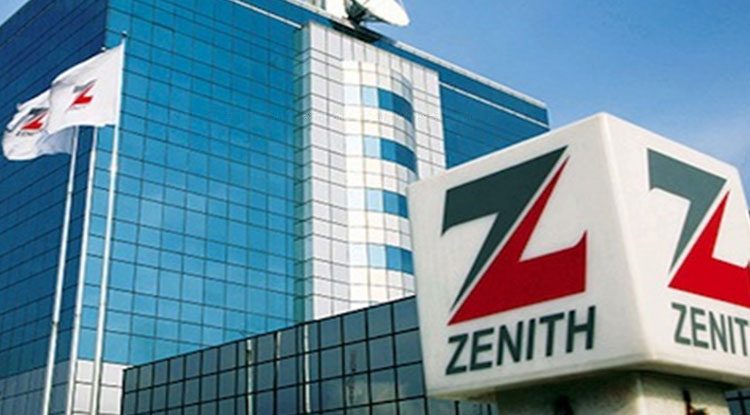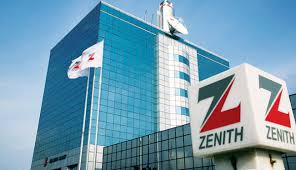Features
Reaching the Zenith
Published
10 years agoon
By
Olu Emmanuel
Zenith was one of those new generation banks established in 1990 that have revolutionised the concept of banking in Nigeria. ODUNEWU SEGUN takes a look at the phenomenal growth of the bank from an asset growth of $1.25bn in 2004 to a staggering $19.3bn in 2015.
WITH a total assets of N3.842 trillion ($19.3bn) as of September, 2015, from $1.25bn in 2004, customer deposit of N2.552 trillion, 6,350 employees, 1.6 million customers, over 500 branches and a market capitalization that was well over N441 billion as of December, 2015, Zenith Bank is one of the biggest and most profitable bank in Nigeria and in all of West Africa.
As part of its success story, the bank was recently named among the top 1000 banks in the world with $2.837 billion shareholders fund, placing it 7th in Africa and the biggest in Nigeria.
Established in May 1990, the bank started operations in July of the same year as a commercial bank. It became a public limited company on June 17, 2004 and was listed on the Nigeria Stock Exchange on October 21, 2004 following a highly successful Initial Public Offering (IPO).
With over 500 branches and business offices nationwide, presence in all the state capitals, Federal Capital Territory (FCT), major towns and metropolitan centres in the country, Zenith Bank has been growing its customers’ businesses and wealth which has positioned it as the financial institution of choice.
Zenith became the first Nigerian bank in 25 years in 2007 to be licensed by the UK Financial Services Authority (FSA), giving rise to Zenith Bank (UK) Limited. Zenith Bank also has a presence in: Ghana, Zenith Bank (Ghana) Limited; Sierra Leone, Zenith Bank (Sierra Leone) Limited; Gambia, Zenith Bank (Gambia) Limited and a representative office in Johannesburg, South Africa and a representative office is in Beijing, China.
It is also one of the few banks that posted profits last year, declaring a profit after tax of N105.66 billion for the financial year ended December 31, 2015. Its Net Interest Income appreciated to N224.58 billion from N206.503 billion in the preceding year. Zenith Bank, despite the economic downturn, also announced a profit after tax (PAT) of N26.573 billion for the first quarter ended March 31, 2016, showing a decline of about four per cent compared to N27.680 billion recorded in the corresponding period of 2015.
Zenith Bank has built a brand as a reputable, international, financial institution, recognised for innovation, superior customer service and performance while creating premium value for all stakeholders. Today, the bank is easily associated with the following attributes: Innovation, solid financial performance, stable and dedicated management, highly-skilled personnel, leadership in the use of ICT, strategic distribution channels and good asset quality.
ALSO SEE: Zenith Bank clinches ‘Nigeria’s Most-Focused Bank’ award
Zenith Bank Plc blazed the trail in digital banking in Nigeria; scoring several firsts in the deployment of Information and Communication Technology (ICT) infrastructure to create innovative products that meet the needs of its teeming customers. The bank is verifiably a leader in the deployment of various channels of banking technology, and the Zenith brand has become synonymous with the deployment of state-of-the-art technologies in banking.
Driven by a culture of excellence and strict adherence to global best practices, the Bank has combined vision, skillful banking expertise, and cutting-edge technology to create products and services that anticipate and meet customers’ expectations; enable businesses to thrive and grow wealth for customers.
It has been able to achieve these feats in its over 25 years of operation because it always delivered a superior service experience to all customers while developing deeper and broader relationship with all clients and striving to understand their individual and industry peculiarities with a view to formulating specific solutions for each segment of the customer base.
Also as parts of reasons for its story, Zenith Bank has continually been enhancing the bank’s processes and systems to deliver new capabilities and improve operational efficiencies and achieve economies of scale.
The capital adequacy of the bank is reviewed regularly to meet regulatory requirements in order to adopt and implement the decisions necessary to maintain the capital at a level that ensures the realisation of the business plan with a certain safety margin.
The Central Bank of Nigeria (CBN) requires each bank to maintain a certain ratio of total regulatory capital to the risk-weighted asset at or above the minimum of 10 percent.
Zenith Bank Plc has consistently met and surpassed this requirement. Most of the bank’s capital is Tier 1 (Core Capital), which consists essentially of share capital, retained earnings and reserves.
The group’s capital plan is linked to its business expansion strategy which anticipates the need for growth and expansion in its branch network and IT infrastructure. The capital plan sufficiently meets regulatory requirements as well as provides adequate cover for the group’s risk profile. Its capital adequacy remains strong and the capacity to generate and retain reserves continues to grow.
Zenith Bank’s liquidity profile remains very strong (being a consistent net placer of funds in the interbank market) and its risk management practices give assurance that this profile will be maintained. The bank has a sound and robust liquidity risk management framework that ensures it maintains sufficient liquidity, including a cushion of unencumbered, high-quality liquid assets at all times.
Its compliance with liquidity and funding requirements includes the following processes: projecting cash flows and considering the level of liquid assets necessary in relation to needs; monitoring balance sheet liquidity ratios against internal and regulatory requirements; maintaining a diverse range of funding sources with adequate back-up facilities; managing the concentration and profile of debt maturities; monitoring depositor concentration in order to avoid undue reliance on large individual depositors; and ensuring a satisfactory overall funding mix, while maintaining liquidity and funding contingency plans.
In 2009, the Central Bank of Nigeria (CBN) conducted a special audit to ascertain the stability of the banking sector in the country. Zenith Bank was one of the 14 banks that passed the audit. The result of the audit led to the quasi-nationalisation of 10 banks representing about 50 percent of system assets.
In the area of Corporate Social Responsibility (CSR), it has not only won several awards and accolades within Nigeria, but it has also done so internationally. Zenith Bank’s efforts in this area cover a broad range of human needs and have impacted positively on the quality of life of a large number of individuals, interest groups and communities.
These efforts cover areas such as education, health, community development, sports, youth and women empowerment, arts and culture, disaster relief, security, government agencies and non-governmental organisations’ activities among others. As a responsible corporate citizen, the bank endeavours to make contributions that make a meaningful impact on the well-being of the beneficiaries and the society at large.
Aside from recently being named among top 1000 profitable banks in the world by Financial Times, Zenith Bank has consistently recorded good ratings from both the international (Fitch Ratings, Standard & Poor’s) and local (Agusto& Co.) rating agencies.
ALSO SEE: Zenith leads 9 others in top 1000 bank ranking
The ratings on Zenith Bank Plc are supported by its leading market position in all key performance indices.
Zenith Bank has consistently put in place a robust system of corporate governance, bearing in mind the key elements of honesty, trust, integrity, openness and accountability as well as commitment to the organisation’s goals. To uphold strong corporate governance and transparency, the bank adopts a robust public disclosure policy. This is to forestall incidences of abuse, such as insider trading.
All financial information, as well as exceptional and extraordinary events capable of influencing the public decision concerning the bank, are approved for dissemination by the board and then related through authorised means to the public at the same time.
The release of such information is done speedily and as often as stipulated by the regulatory bodies.
Today, under a vibrant management team led by the Managing Director/Chief Executive Officer, Peter Amangbo, Zenith Bank continues to thrive on the strong values, brand equity, corporate culture of professionalism and service excellence which are the foundations upon which the bank was built.
You may like


Zenith Bank emerges best commercial bank in Nigeria


World Banks Ranking: Zenith Bank retains top position


GTbank, Access, others drag NSE to negative close


Zenith extends lead, retains position as Nigeria’s number one Bank
Zenith Bank posts improved earnings in Q1 2020


Zenith Bank holds AGM, rewards shareholders
Trending

 Health5 days ago
Health5 days agoDeclassified CIA memo explored concealing mind-control drugs in vaccines

 Entertainment6 days ago
Entertainment6 days agoSimi addresses resurfaced 2012 tweets amid online backlash

 Crime5 days ago
Crime5 days agoSenior police officers faces retirement after Disu’s appointment as acting IGP

 Education7 days ago
Education7 days agoPeter Obi urges JAMB to address registration challenges ahead of exams

 Health7 days ago
Health7 days agoNAFDAC issues alert on suspected revalidated SMA Gold infant formula

 Comments and Issues6 days ago
Comments and Issues6 days ago20 Critical Fixes to Save Nigeria’s Democracy from Electoral Fraud

 Football6 days ago
Football6 days agoMartínez ruled out of Everton clash with calf injury

 Latest6 days ago
Latest6 days agoICPC yet to respond to El-Rufai’s bail request as arraignment date looms

